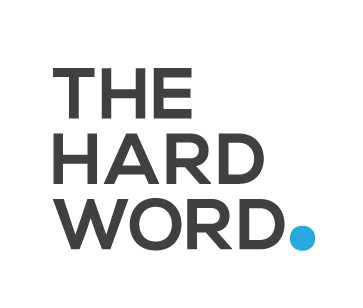Thought Leader Insight: Innovating outside the box
Everything we know about innovation suggests the new environment in which we currently find ourselves might provide the perfect setting for big, new ideas. Why? Because we’re now away from our offices, which typically destroy creativity.
THE HARD WORD’S THOUGHT LEADER INSIGHT SERIES IS INSPIRED BY MOMENTS FROM OUR REGULAR INTERVIEWS WITH THE BEST AND BRIGHTEST IN BUSINESS.
It has long been popular wisdom that many of our most creative ideas and solutions come to us during moments of mental relaxation – in the shower or on the loo, for instance.
But it’s not just anecdotal. The fact that innovative and creative ideas come to us when we’re outside of situations that typically require us to think, behave or perform in a specific way has been proven through academic research.
Take the study called ‘Neural Correlates of Lyrical Improvisation: An fMRI study of Freestyle Rap’ (Liu, S., Chow, H., Xu, Y. et al. Sci Rep 2, 834, 2012). It looked into changes in brain activity that enable “spontaneous creative activity through effects on systems that regulate attention, affect, language and motor control”.
The study revealed, among many other fascinating results, that “a state of defocused attention enables the generation of novel, unexpected associations that underlie spontaneous creative activity”.
In other words (and first I must apologise to the researchers for oversimplifying their work), the creative mind doesn’t work well within a strict framework, and frameworks don’t come much stricter than those in organisations and offices.
However, many staff are now free from the numerous and enormous creative constraints placed upon them by the modern workplace. Perhaps organisations might now get what they have long desired in terms of innovation, depending on how they encourage and manage the ideas process.
This line of thinking took me back to an interview with prolific small business author and speaker Andrew Griffiths, who outlined for me the many innovation blockers in a workplace, as well as organisational behaviour that best encourages powerful ideas.
What blocks innovation?
“Stress is not conducive to innovation,” Griffiths says. “Also, innovation can only really occur in an environment where everybody has equal say and they feel they can speak up.”
Stress, and the inability to speak up and be heard – that sounds like most organisations!
Actually, Griffiths’ comments remind me of a story I was told about a problem the US Navy had decades ago – they couldn't fit enough aircraft on aircraft carriers. There simply wasn’t room. In a meeting to discuss this problem, a young, female secretary who was in the room to take the minutes dared to mention a solution she thought was fairly obvious.
Amongst a group of senior military officers - all male - she asked why they couldn’t build aircraft with wings that could be folded, to create more room to house the planes.
The group originally laughed politely at her suggestion, but by the end of the meeting the idea had spread like a … erm … virus. Years later, many military aircraft had folding wings. What was important was the fact that she felt she had permission to speak up.
“A business also needs to manage those who are more vocal,” Griffiths continues. “Some people innovate by talking and others have to sit back and think. All must be given equal opportunity, so the business must manage those who are naturally domineering.”
“If staff are in the same office all day, every day, doing the same work and following the same rules, it is very unlikely that innovative thought will happen. But when you remove yourself from that framework, that changes the way the brain works. Then the only thing that can stop innovative thought is the cynic, the person in the group who has a ‘this is the way we’ve always done it’ mentality.”
Is COVID-19 the perfect innovation incubator?
And so we’re all now out of our offices and in a more relaxed (mostly, at least) and familiar home environment. We’re living by our own rules and operating in our own frameworks, but still contributing to our organisations.
We’re away from the strict rules and regimented activities of the office. We’re away from those who are more vocal and those that might mute our creative conversations. Like the freestyle rappers in the study mentioned above, we’ve had our shackles removed.
How can businesses take advantage of this?
According to Griffiths, businesses should encourage staff to look outside of their group, and outside of their industry, for solutions to problems.
“Look outwards and see what others are doing,” he says. “Be aware of what your competitors are doing, but not obsessed. The greatest source of inspiration might be a mechanic looking at how a baker operates, for example.”
Once again, I’m taken back to a story told to me by another interviewee. When an FMCG company had problems with the shelf life of its whipped-cream-in-a-can product, he said, they found a perfect and surprisingly simple solution only after speaking with experts from the fire extinguisher industry.
“Then make innovation meetings as regular as finance or sales or marketing meetings,” Griffiths says. “Put a structure in place to welcome ideas. Give people projects around innovation. Ask people to come back with three amazing ideas from any industry in the world.”
What’s important, Griffiths says, is the clear rewarding of innovative thinking and the discouragement of any behaviour that stifles that thinking.
This interview was conducted long before the COVID-19 crisis occurred, and long before organisations were forced to make it possible for many of their staff to work from home. Imagine the opportunity that now exists.
Chris Sheedy spoke with Andrew Griffiths, for a story published in the Australian Institute of Management’s Management Today magazine.





